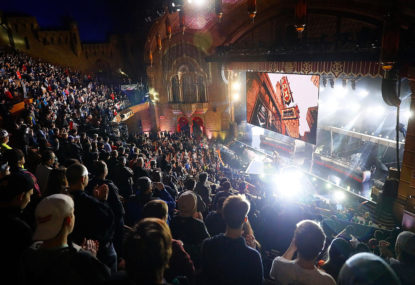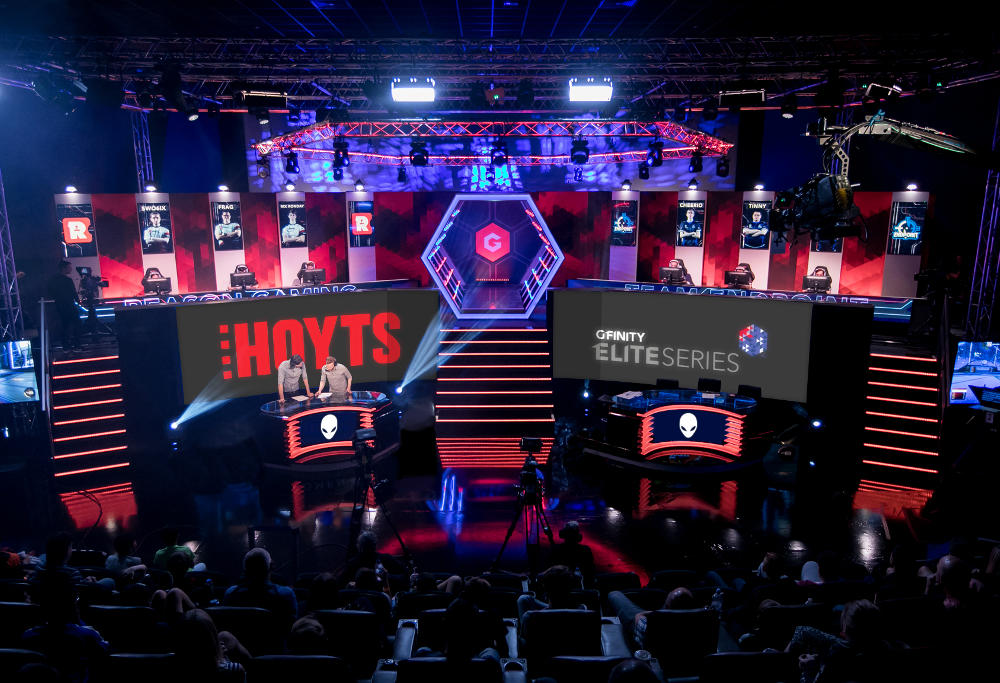2022 Trivia: The Roar's jam-packed Christmas Day sports quiz!
The jam-packed month-by-month quiz full of 2022 sports trivia!

There seems to be a lot of discussion around the moniker of sports and whether or not esports fit under the same umbrella.
I previously wrote about esports being as social as traditional sports, which most seemed to agree with but the idea that they were actually a sport came under contention.
It’s something I struggled to understand for the longest time as my traditional understanding of a sport tends to constitute a lot more physical movement. I think this is the barrier for most people, the idea that there’s not enough motion when compared to things like track or football.
That the people involved can be not in what appears to be the finest physical form and then when performing they mostly sit still. It goes against what most conjure when they think of a sport and maybe that’s part of the problem.
Esports is not the first to fly in the face of such a definition. Chess is recognised by the International Olympic Committee to be a sport and while impressive mentally, requires less physical prowess than an esport. Equestrian events like dressage are also readily accepted sports as well as things like curling or even shooting.
The argument that esports aren’t physical enough may be the reason so many think they don’t qualify but surely the definition has already been pushed to be broader than this? Even without these comparisons, the hand-eye coordination and quick reflexes required to perform at the top tier of these games hold the prowess to gain entry into the hallowed sports halls.
With all this said, what makes esports sports is so much more important than whatever goes against the personal definitions of individuals. Things are, after all, brought together by similarities and if there were no differences there would be no variety.
Esports are at their hearts competitions of skill.
Among professional players, we see the highest level of ability pit against one another for a title or prize. Adrenaline runs high when matches are close and good sportsmanship prevails when they’re not.
For some there’s teamwork and we can see each member play a role which is thought out and practiced. Hours of work behind the scenes training with players and coaches forges the best of the best. Common themes and plays recur and gain names and great moments and players become staples in homes from all over the world that tune in to watch them.
Stadiums are built to showcase these feats and bring people together to enjoy the waves of atmosphere and emotion. There are casters, experts, and analysts who develop careers talking about the different game on worldwide broadcasts for fans at every corner of the globe.
Millions of dollars pour into the industry as victories and defeats are felt by players and supporters. Countries and towns swell with pride and mourn defeats wearing the colours of their appointed champions.

(Image: Gfinity Australia)
Players are bought and signed and traded between teams. Sponsorship deals are fought and won with awkward product placements and athletes give white-teeth smiles while professing the quality of sometimes irrelevant products. Hopefully, in the future we’ll even see a perfect movie where an ex-top player is pulled into a match to save a cartoon world from an evil alien corporation.
Tools used by the best are coveted among fans and advancements in equipment can lead to changes in the games themselves. The games change and evolve as new rules are put in place to help maintain balanced play. Illegal items or actions are punished and looked down upon and those who do so are often shamed from the industry itself.
Performance enhancing drugs are used, scandals appear, and dodgy deals to throw games occur. Players face injuries and have limited career lifetimes as their peak descends and makes way for new blood.
I don’t see how what I could be describing would be seen as anything other than a sport. Somehow when I add the caveat that these games take place on a computer everything else is thrown out the window. Some say if that much equipment is required to play then it can’t be a sport as though courts, hoops, and even balls have never existed.
I can understand that the immediate association of sport may not come to mind but when examined closely it really is the best description for esports. Saying they aren’t a sport at this point feels more like exclusion and gatekeeping than a useful debate about definitions.
The similarities just outplay any perceived differences and sports are already so varied that the definition has already stretched to encompass things far more outrageous than video games.